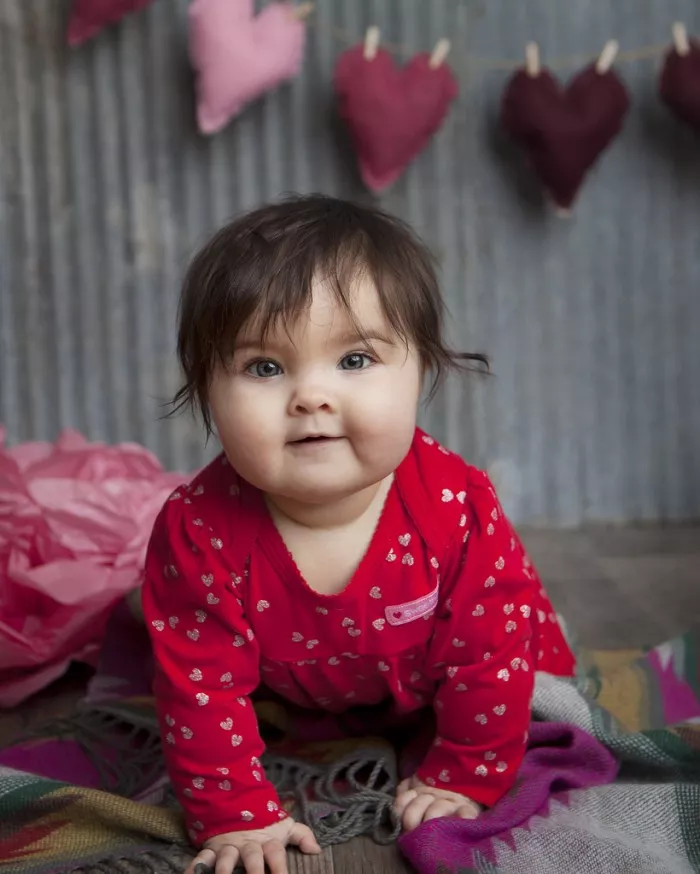Whenever Vanessa lobue teaches memory in a child development class at Rutgers University, she asks students to recall their initial memories at the beginning. Some students talked about their first day in kindergarten; Some students talked about when they were hurt or unhappy; Some students mentioned the day their younger brother and sister were born. Although there are great differences in details, these memories do have several things in common: they are autobiographical memories, or memories of important experiences in one's life, and they usually do not occur before the age of 2 or 3.

In fact, most people don't remember the first few years of their lives - a phenomenon researchers call "infantile amnesia.". But why can't we remember what happened in our infancy? Does memory only work at a certain age?
Here's what researchers know about babies and memories:
Babies can form memories
Although people can't remember many things before the age of 2 or 3, research shows that babies can form memories - just not the kind of memories you tell yourself. In the first few days of life, babies can recall their own mother's face and distinguish it from that of strangers. After a few months, babies can prove that they remember many familiar faces by smiling at the people they see most often.
In fact, in addition to those autobiographical memories, there are many different kinds of memories. Have semantic memory, or memory of facts, such as different varieties apples Name of. There is also procedural memory, or memory of how to perform an action, such as opening your front door or driving a car.
Research by psychologist Carolyn rovee collier in the 1980s and 1990s showed that infants can form some of these other types of memories at a very young age. Of course, babies can't tell you exactly what they remember. Therefore, the key to the rovee collier study is to design a task sensitive to infants' rapidly changing bodies and abilities to assess their long-term memory.
In the version for infants aged 2-6 months, the researchers placed the baby in a cradle with a mobile phone hanging over his head. They measured the baby's kicking to understand their tendency to move their legs naturally. Next, they tied a rope from the baby's leg to the end of the mobile phone, so that whenever the baby kicked his leg, the mobile phone would move. As you can imagine, babies soon know that they are in control -- they like to see the mobile device move, so they kick more than before the rope is tied to their legs, indicating that they already know that kicking will move the mobile device.
The version designed for infants aged 6 to 18 months is similar. However, instead of lying in a crib -- babies of this age don't lie for long -- they sit on their parents' legs with their hands on a lever, and eventually make the train move on the track. At first, the lever did not work, and the experimenter measured the degree of natural depression of the baby. Next, they open the lever. Now, every time the baby presses, the train moves on the track. The baby quickly learned the game again, and when the train moved, the baby pressed the lever significantly more times.
What does this have to do with memory? The most ingenious part of the study was that after training infants for one of these tasks for several days, rovee collier later tested whether they remembered it. When the babies returned to the lab, the researchers simply showed them the cell phone or the train and measured whether they still kicked and pressed the lever.
Using this method, rovee collier and colleagues found that at 6 months, if infants were trained for one minute, they could remember an event a day later. The older the baby, the longer they remember. She also found that you can make babies remember events longer by training them for longer and giving them reminders - for example, by letting them watch their mobile phones move for a short time.
Why not autobiographical memory?
If babies can form memories in the first few months, why can't people remember things from the very beginning of life? It is not clear whether people suffer from "childhood experience amnesia" because we cannot form autobiographical memories or because we cannot retrieve them. No one knows exactly what happened, but scientists have some guesses.
One is that autobiographical memory requires people to have some self-awareness. People need to be able to think about how their actions relate to others. Researchers used to test this ability with a mirror recognition task called "rouge test". It involves putting red lipstick or powder Blusher on babies' noses -- or what they called "rouge" when they created the task in the 1970s.
The researchers then placed the baby in front of a mirror. Babies under 18 months of age only smile at the lovely baby in the reflection, and show no evidence that they recognize themselves or the red marks on their faces. Between 18 and 24 months of age, toddlers touch their noses and even appear embarrassed, indicating that they associate the red dots in the mirror with their faces - they have some self-awareness.
Another possible explanation for "childhood experience amnesia" is that since babies have language only in the second year after birth, they cannot form narratives about their lives, which can be recalled later. Finally, the hippocampus, the brain's main memory area, is not fully developed in infancy.
Scientists will continue to study how each of these factors causes you to not remember much, if any, about your life before the age of two.